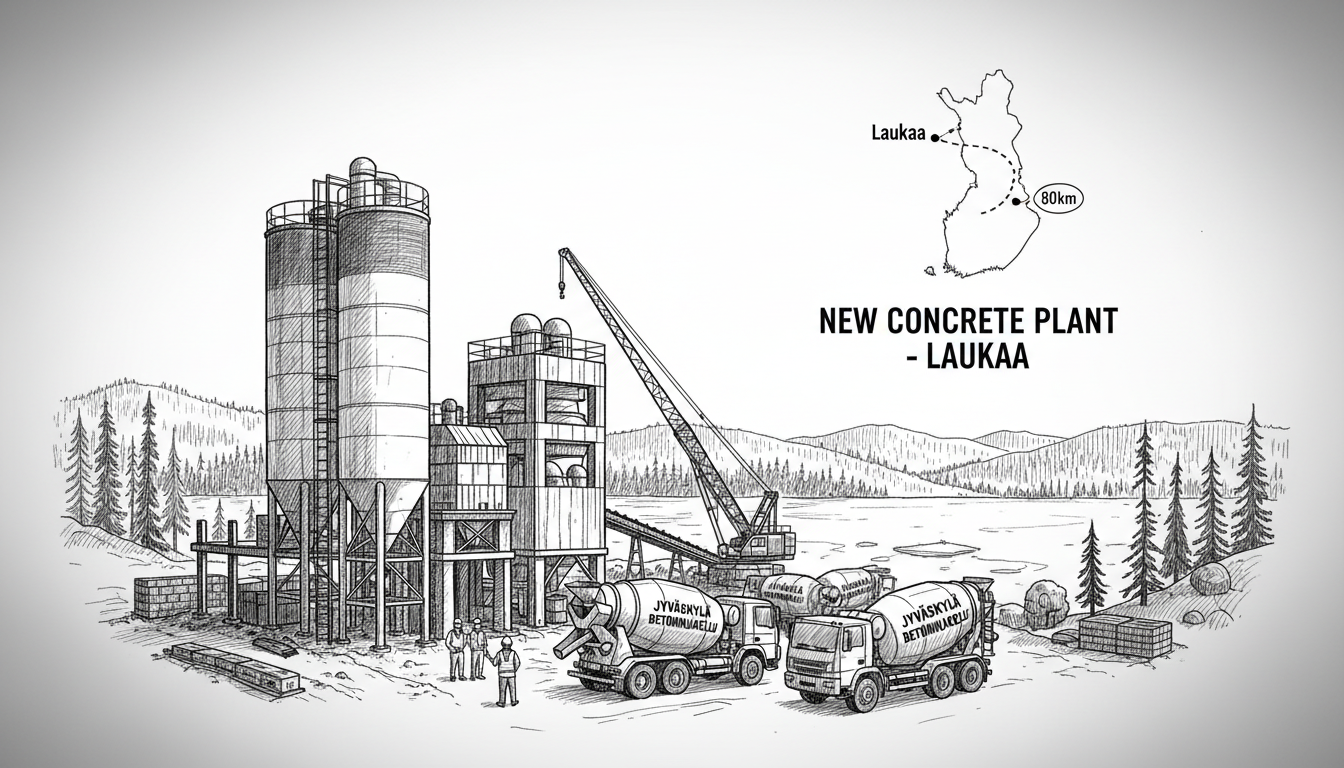Construction crews are currently excavating foundations and installing reinforcements for a new ready-mix concrete plant in Leppävesi, Laukaa. The facility will produce concrete for the Jyväskylä region within an 80-kilometer radius when operations begin in late January.
The Rudus company chose the Vihtiäläntie location in Leppävesi for its excellent logistical advantages. The site provides convenient access to multiple directions without requiring travel through Jyväskylä city center. Company officials considered locations on the Jyväskylä side but ultimately selected the Laukaa site for its superior transportation access.
A concrete recycling unit will join the main production facility later. This additional unit will process and recycle demolition concrete, supporting sustainable construction practices in Central Finland.
The new concrete plant will employ three Rudus workers plus 10-12 subcontractors once operational. The recycling unit will not require full-time staff but will employ 2-3 people during crushing operations.
This expansion comes as Central Finland experiences growing construction activity, particularly around the Hippos development project in Jyväskylä. The region has seen increased demand for construction materials as urban development accelerates.
The plant's location reflects strategic planning for regional infrastructure growth. Central Finland's construction sector has been strengthening in recent years, with both residential and commercial projects driving material demand.
Local businesses welcome the new industrial investment. The plant will reduce transportation costs and delivery times for construction projects throughout the region. This represents a practical solution to supply chain challenges that have affected construction timelines in Central Finland.
Construction industry experts note that local concrete production can significantly impact project efficiency. Reduced transport distances mean fresher concrete and more flexible scheduling for builders working on tight deadlines.
The recycling component addresses growing environmental concerns in the construction sector. Concrete recycling helps reduce landfill waste and lowers the carbon footprint of new construction projects.
Regional development officials see this investment as supporting broader economic growth. The plant will create both direct and indirect employment opportunities while supporting other construction-related businesses.
What does this mean for the local construction industry? Builders in the Jyväskylä area will gain access to locally produced concrete with shorter lead times. This could potentially accelerate project completion schedules and reduce costs for developers.
The timing aligns with several major development projects planned for Central Finland. The region continues to attract investment in both residential and commercial construction, creating sustained demand for building materials.
Local authorities have supported industrial development in the area, recognizing the economic benefits of maintaining strong construction supply chains. This approach helps keep construction projects on schedule and within budget.
The plant represents a tangible commitment to regional development. Rather than relying on distant suppliers, Central Finland will strengthen its self-sufficiency in construction materials.
This development follows a pattern of strategic industrial investment in the region. Companies are recognizing the growth potential in Central Finland and making long-term commitments to serve local markets.
The concrete plant and recycling facility together represent a comprehensive approach to construction materials. They address both immediate production needs and long-term sustainability concerns that are increasingly important to developers and communities.

